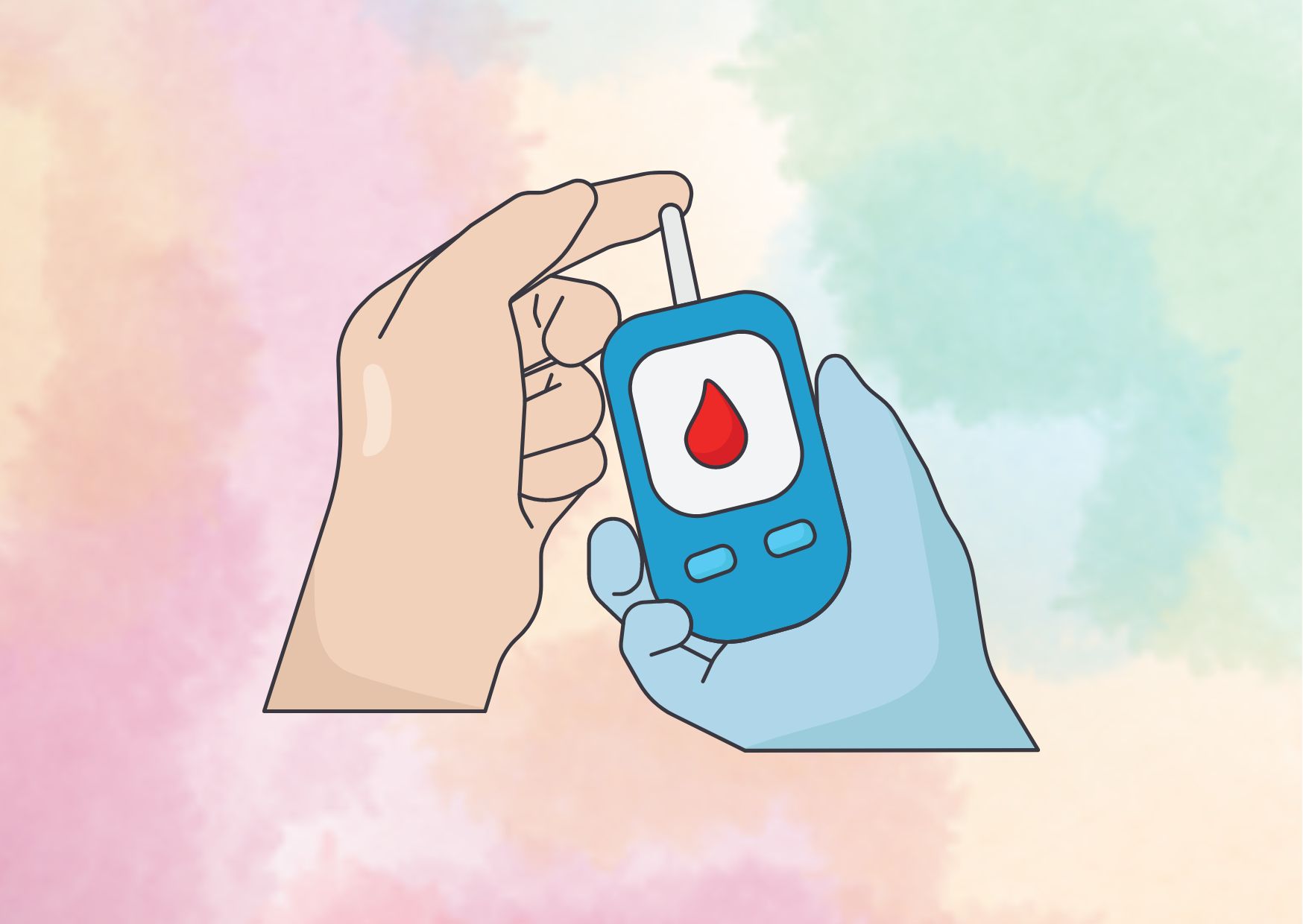21 Problems Linking Diabetes and Mental Health: A Comprehensive Guide
Diabetes, a chronic condition characterized by elevated blood sugar levels, has far-reaching implications that extend beyond physical health. The intricate relationship between diabetes and mental health has garnered significant attention in recent years, as research unveils the profound impact this metabolic disorder can have on an individual’s psychological well-being. Recognizing and addressing this connection is crucial for effective diabetes self-management and overall quality of life.
This comprehensive guide delves into the complex interplay between diabetes and mental health conditions such as depression, anxiety, and diabetes distress. It explores the various factors that contribute to this link, including the emotional toll of managing a chronic illness, the challenges of diabetes self-management, and the increased risk of mental health concerns among those living with diabetes. Additionally, the guide examines the impact of untreated mental health issues on diabetes management, treatment strategies, and coping mechanisms, emphasizing the importance of an integrated care approach that addresses both physical and mental well-being.
Diabetes and Mental Health Connection
The intricate link between diabetes and mental health is a complex, bidirectional relationship that has far-reaching implications for individuals living with this chronic condition. Understanding this connection is crucial for effective diabetes management and overall well-being.
How diabetes can impact mental health
A diabetes diagnosis can be a life-altering event, requiring significant lifestyle changes that can be emotionally challenging. Whether it’s type 1 diabetes, where the body does not produce insulin, or type 2 diabetes, where the pancreas produces insufficient insulin, the adjustments required can strain relationships and emotional well-being.
The constant vigilance required in managing blood sugar levels can be a source of significant stress and anxiety. Rapid fluctuations in blood sugar can cause mood swings, fatigue, cognitive impairment, and heightened anxiety, further exacerbating mental health concerns.
Moreover, individuals with diabetes are at an increased risk of developing a condition known as “diabetes distress.” This condition shares traits with stress, depression, and anxiety but is specifically linked to causal factors related to diabetes management. For example, the fear of hypoglycemia (low blood sugar) or the burden of self-care can contribute to diabetes distress. External factors, such as family support, societal attitudes, and access to healthcare services, can also influence the development of diabetes distress. It is estimated that 33% to 50% of individuals with diabetes will experience diabetes distress at some point.
Prevalence of mental health issues in diabetes
Research has consistently shown that individuals living with type 1 or type 2 diabetes are at an increased risk for developing mental health conditions, including depression, anxiety, and eating disorders.
- Depression: Rates of depression across the lifespan are two times greater for individuals with diabetes compared to the general population. This increased risk is observed in both type 1 and type 2 diabetes.
- Anxiety disorders: Many individuals with diabetes also experience comorbid anxiety disorders, such as generalized anxiety disorder, panic disorder, or post-traumatic stress disorder.
- Eating disorders: People with type 1 diabetes are twice as likely to develop disordered eating compared to those without diabetes. Women with type 1 diabetes have a two-fold increased risk for developing an eating disorder, while women with type 2 diabetes are more likely to struggle with binge eating.
The prevalence of mental health comorbidities in diabetes is a significant concern, as these conditions can compromise adherence to treatment and increase the risk of serious short- and long-term complications, including blindness, amputations, stroke, cognitive decline, decreased quality of life, and premature death.
Identifying Mental Health Concerns
Signs and symptoms of depression, anxiety, and diabetes distress
Identifying mental health concerns in individuals with diabetes is crucial for effective management and overall well-being. Depression, anxiety, and diabetes distress can manifest in various ways, and recognizing the signs and symptoms is the first step towards seeking appropriate support and treatment.
Depression and diabetes share some overlapping symptoms, such as fatigue, sleeping difficulties, and trouble concentrating. This can make it challenging to distinguish whether the symptoms are caused by depression, diabetes, or a combination of both. However, if an individual experiences one or more of the following symptoms for an extended period (typically longer than two weeks), it may indicate the presence of depression:
- Persistent feelings of sadness, emptiness, or hopelessness
- Loss of interest or pleasure in activities once enjoyed
- Significant weight loss or gain (unrelated to dieting)
- Insomnia or excessive sleeping
- Restlessness or sluggishness
- Fatigue or lack of energy
- Feelings of worthlessness or excessive guilt
- Difficulty concentrating or making decisions
- Recurrent thoughts of death or suicidal ideation
Anxiety disorders, such as generalized anxiety disorder, panic disorder, or post-traumatic stress disorder, can also co-occur with diabetes. Signs and symptoms of anxiety may include:
- Excessive worry or fear
- Irritability
- Restlessness or feeling on edge
- Muscle tension
- Difficulty concentrating
- Sleep disturbances (insomnia or difficulty staying asleep)
- Panic attacks (palpitations, sweating, trembling, shortness of breath)
Diabetes distress, a condition specifically related to the emotional burden of managing diabetes, can manifest in various ways. Individuals may experience:
- Feelings of overwhelm, stress, or burnout related to diabetes self-management tasks
- Concerns about the potential for future complications
- Frustration with the daily demands of diabetes care
- Feelings of guilt or failure when blood sugar levels are not within the desired range
- Interpersonal or family-related difficulties due to the demands of diabetes management
It is important to note that these signs and symptoms can overlap, and individuals may experience a combination of depression, anxiety, and diabetes distress.
Importance of regular screening
Given the high prevalence of mental health conditions among individuals with diabetes and the potential impact on diabetes management, regular screening for depression, anxiety, and diabetes distress is crucial.
The American Diabetes Association (ADA) recommends regular screenings for depression and diabetes distress, particularly if individuals with diabetes experience comorbidities, diabetes-related complications, significant life events, or changes in their treatment plan.
Numerous validated assessment tools are available to screen for depression severity and diabetes distress. The Patient Health Questionnaire-9 (PHQ-9) is a widely used and reliable screening tool for depression, performing well in individuals with and without diabetes. The Problem Areas in Diabetes Scale (PAID) and the Diabetes Distress Scale (DDS) are effective measures for detecting diabetes distress.
Regular screening can help identify mental health concerns early, enabling timely intervention and support. It is estimated that up to 45% of mental health conditions and cases of severe psychological distress go undetected among individuals being treated for diabetes, highlighting the importance of proactive screening.
Diabetes treatment teams, including healthcare professionals with expertise in mental health and diabetes, play a crucial role in conducting regular screenings and ensuring whole-person care. However, the reality is that few diabetes clinics integrate behavioral health services or provide mental health screening. In such cases, online screening tools can be a valuable resource for individuals to assess their mental health status and seek professional help if needed.
Impact on Diabetes Management
How mental health conditions can affect self-care
Mental health conditions like depression, anxiety, and diabetes distress can significantly impair an individual’s ability to effectively manage their diabetes. These psychological challenges can undermine crucial self-care behaviors, ultimately leading to suboptimal glycemic control and an increased risk of diabetes-related complications.
- Adherence to treatment regimens: Depression and anxiety can reduce motivation and make it challenging to adhere to prescribed treatment plans, such as monitoring blood sugar levels, taking medications as prescribed, and following dietary recommendations.
- Engagement in self-care activities: Individuals with mental health conditions may struggle to engage in essential self-care activities like regular exercise, healthy eating habits, and attending medical appointments. Depression, in particular, can lead to unhealthy coping mechanisms like overeating or neglecting self-care tasks.
- Problem-solving abilities: Diabetes self-care requires a high level of problem-solving ability, which can be negatively impacted by depression and anxiety. This can result in poorer self-care practices and, consequently, poorer glycemic control.
- Healthcare utilization: Mental health conditions like depression have been associated with decreased healthcare utilization, which can further exacerbate the challenges of diabetes self-management.
- Diabetes self-management: Studies have consistently demonstrated a negative correlation between mental health conditions and diabetes self-management (DSM). As depression and anxiety levels increase, engagement in DSM activities tends to decrease.
Consequences of untreated mental health issues
Failing to address mental health concerns in individuals with diabetes can have severe consequences, both in terms of physical health and overall well-being.
- Suboptimal glycemic control: Untreated mental health issues can lead to poor adherence to self-care behaviors, resulting in suboptimal glycemic control and an increased risk of diabetes-related complications.
- Increased risk of complications: Poor glycemic control due to untreated mental health conditions can accelerate the development of various diabetes-related complications, including cardiovascular disease, neuropathy, nephropathy, and retinopathy.
- Reduced quality of life: Mental health conditions like depression and anxiety can significantly diminish an individual’s overall quality of life, leading to decreased productivity, social isolation, and a general sense of diminished well-being.
- Increased healthcare costs: Untreated mental health issues can result in higher healthcare costs due to the need for more frequent medical interventions, hospitalizations, and the management of diabetes-related complications.
- Mortality risk: In severe cases, untreated mental health conditions can contribute to an increased risk of premature mortality, particularly when combined with the long-term effects of poorly managed diabetes.
It is crucial to recognize and address mental health concerns in individuals with diabetes to ensure effective self-management, prevent complications, and improve overall quality of life. An integrated approach that combines medical treatment, psychological support, and lifestyle interventions is essential for optimal diabetes management and mental well-being.
Suggestion for read: Understanding Psychological Disorders

